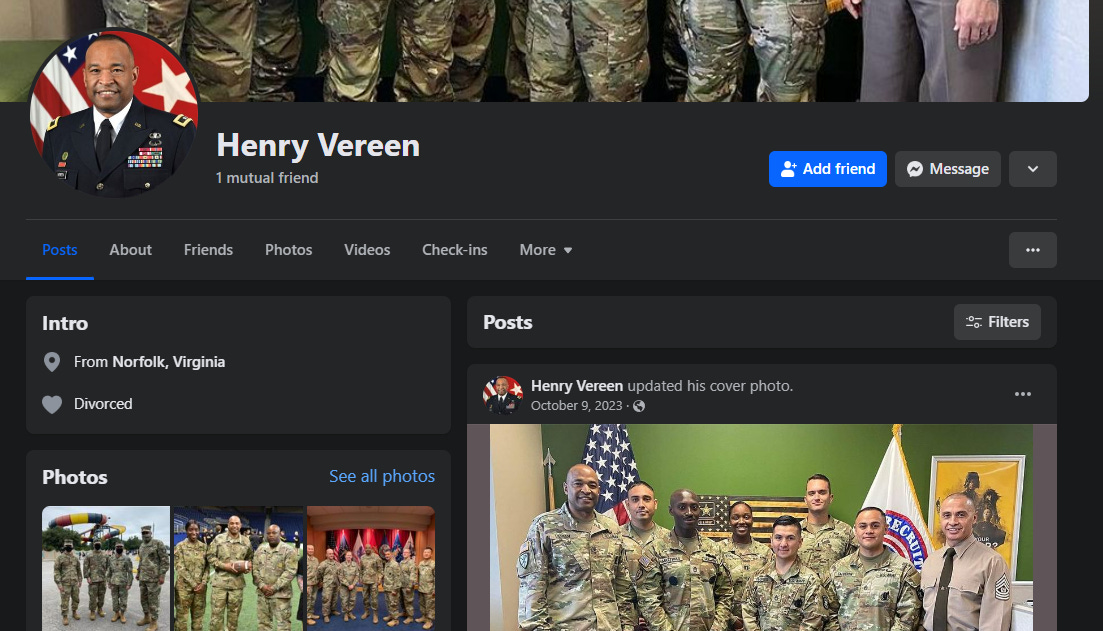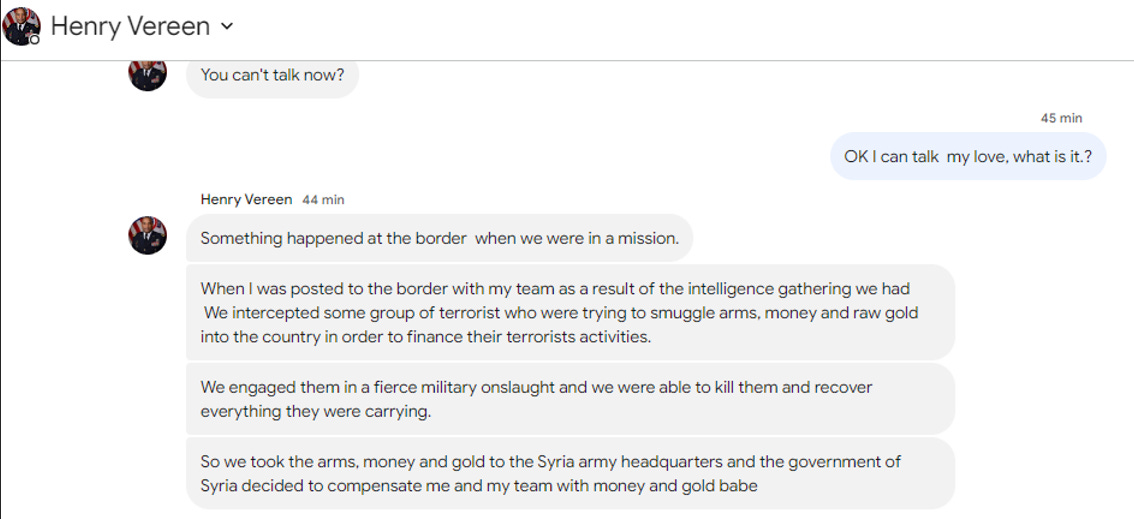The Scammer Who Rizzed Up My Mom
A Romance Scammer Targeted My Mom
Over the holidays, I caught wind of a romance scammer targeting my mom. My sweet mother, a grandma who bakes pies for the neighborhood now, as opposed to the aggressive lady that I’ve seen intimidate men by threatening to poke their eyes out… Time’s Change.
My Mom did and has changed. She is a devoted Christian who serves her community by working with the elderly and over-worrying about the people she loves. So she doesn’t defend herself like she used to, nor does she want to at this point in life.
Thankfully, as a Marine Vet and her son, I have undergone no such changes. I’m not looking to fight, but fights work better than therapy sessions. So here are the scammers' TTPs, and here is how you and your family can avoid these scams.
My almost stepdad first reached out to my Mom on Facebook. Half of the people on earth have access to the internet, and 75% of internet users have social media. Of the social media giants, Facebook is still making Meta $$$, boasting the same amount of accounts as a quarter of the world’s population. For perspective, language has been around forever, and literacy has a slower adoption rate; only 42% of the world could read and write in 1960. So, as your aunties, moms, and grandmas are sending the latest gif designed by a hallmark employee, they see Henry Vereen:
All of the pictures are real. So, I did an Image search:
We immediately discover this is not Henry, but the scammer uses Major General Kevin Vereen’s photos. Unfortunately, ladies, Kevin is not single, but please stay focused (that’s how we got here).
I kept digging because, at the moment, this is internet-stolen valor but not the smoking gun that I’m looking for.
Henry has told my Mom how he is in Syria on deployment at this point, which is all part of his scam. Similar to how you wouldn’t hop in the shower, wash your ass with your washcloth, and then wash your face; Generals don’t tell everyone where they are deployed to.
Our scammer used the military as part of his pretext (fake backstory) because it explains why he can’t be reached after he request money from a victim. Like that guy telling a lady he brought back to his place, “I don’t like outside clothes on my bed,” or when you say hi and she says, “I’m practicing celibacy,” it’s a setup. In most of our interactions, we introduce our motives softly through hints; hackers and scammers do the same thing.
So, let's look at the movie of pretext this scammer sets up:
Death leaves senior ranking war hero fighting terrorism broken-hearted. General pay and widowed/divorced means free funds and room to plan.
Lonely and on deployment, he finds love on the fucking internet without so much as a video call which works because he is targeting a previdchat generation.
Since he is in Syria, his messages can be brief, and since he is facing death himself, that explains his quickness to love.
Eventually, our scammer makes his play:
I can’t stress enough how much these details do not get shared with family and loved ones. Most service members hold reverence for these details. They include the memories of friends who laid it all on the line. Also, any seized assets would have to be disclosed to the US Government, so if “Henry” wanted to share that over a Google chat over the Internet provided by the US government, that would be a little more tricky.
Like clockwork, our scammer’s next message is:
So, thank you to this scammer for gifting us all with awareness.
Let’s burn a couple of his email addresses, too:
henryvereen197@gmail.com,henryvereen198@gmail.com








